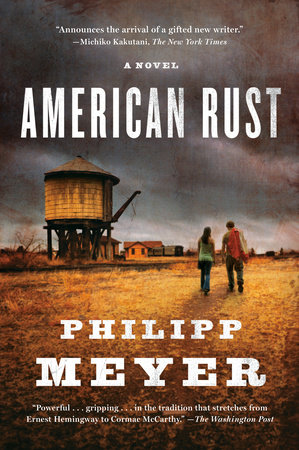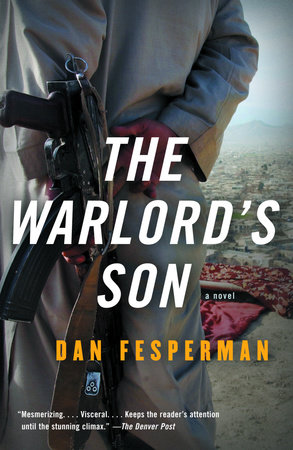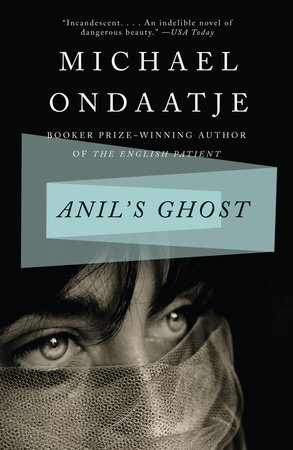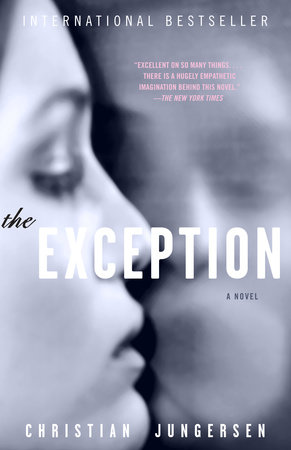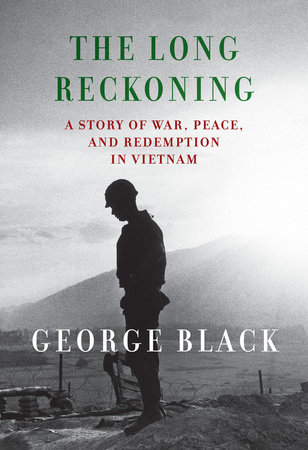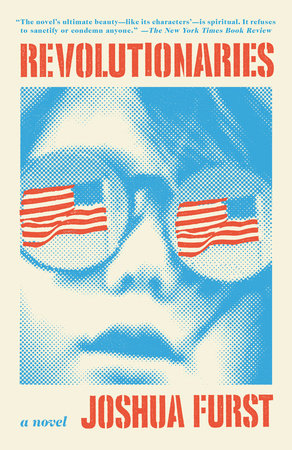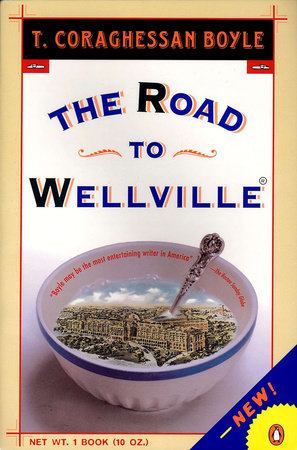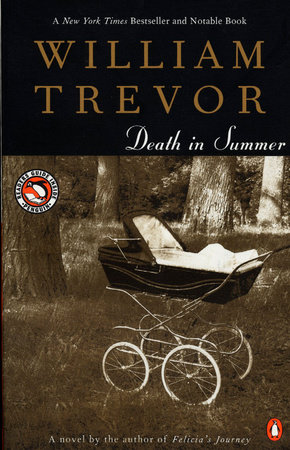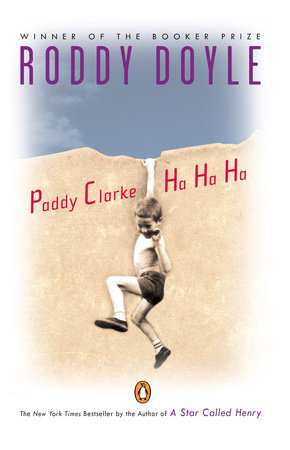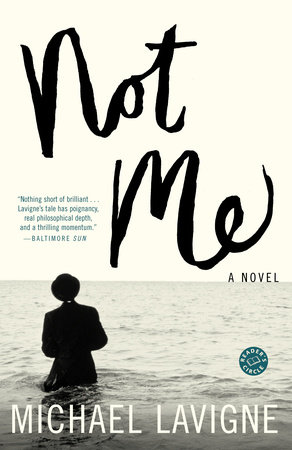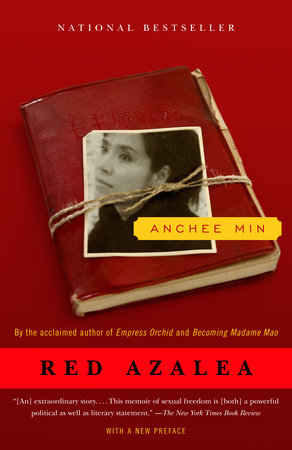Author Q&A
A Conversation with Philipp Meyer
Random House Reader’s Circle (RHRC): You’ve had quite a long and complicated journey to become an author—from high school dropout to Ivy League graduate to Wall Street trader, then construction worker and EMT. How did these experiences inform your writing?
Philipp Meyer (PM): Growing up in Baltimore, in a working-class part of the city called Hampden, was probably the most obvious influence. Like Buell, Baltimore was once a stable, middle-class place, but when the steel and other manufacturing jobs began to leave the city, Baltimore went into a steep decline. The neighborhood where I grew up was symptomatic of that—while it was supportive in many ways, there was also a good deal of violence. It was rarely random, but it was ever present. We lived five doors up from a seedy bar and there were always these spectacular brawls spilling out onto the street; there were always cop cars and ambulances. When I was eleven or twelve a guy kicked down our front door, but ran when he heard my mom running to get the shotgun.
Those early experiences, combined with my work as an EMT and the years I volunteered in a trauma center in Baltimore, probably had a lot to do with my fascination with what exactly makes us human. What is the intersection between our human consciousness, our morality, and our animal impulses? What are we at our core—good, evil, or something in between? Clearly, humans have the capability for enormous self-sacrifice, for love and honor. And of course we have the capability for darker things as well.
RHRC: So how exactly did you go from high school dropout to Cornell graduate?
PM: When I was about fifteen I decided I was done with formal education— I didn’t see a future in it. I didn’t see myself going to college. I thought I could learn more on my own. So I dropped out of high school and spent about five years working as a bike mechanic and two years volunteering in a trauma center in downtown Baltimore—the sort of hospital you go to if you’ve been shot or stabbed.
By the time I was twenty I was getting restless. I wasn’t learning anything new. The idea of sitting down in a class and having someone teach me stuff—that seemed like about the most luxurious thing I could think of. I realized I needed to go to college. Obviously this made my parents pretty happy.
I’d heard from various people that the Ivy League schools were the best place to get an education, so I started applying. The admissions of - ficer at Johns Hopkins actually laughed at me when I told him I was applying there—they didn’t take people with GEDs. So I began taking classes at a small Jesuit college in Baltimore, but kept applying to the big universities. On my third go-round, Cornell decided to take a chance on me.
I started writing my first year of college and at Cornell I started a novel, but I knew I was a long way from being good enough to make a living as a writer. After graduation I took a job that paid well and would give me the freedom to write more. Or so I thought.
RHRC: This is the job on Wall Street, where you were a derivatives trader. Why did you leave?
PM: After a few years I realized I didn’t care about money. I cared about writing and I also felt I was getting disconnected from normal life. Further, I was beginning to wonder if I was morally okay with my role in the economy—after growing up in a city that had been decimated by job loss, I was part of the financial system that closed factories in Pennsylvania and Alabama and moved them to third-world countries. Naturally, when you work on Wall Street, your bosses tell you that it’s actually better for the economy to move all those jobs to other countries, but I was beginning to have my doubts.
When I left the bank, I was a little optimistic about how long it would take me to become a published author. I guessed it would be a year or two, but actually it was about eight years. I ran out of money and realized that my apprentice novel (the one before American Rust) was not good enough to be published, that I needed another job. My instincts told me that going back to Wall Street was going to kill my writing—I somehow needed to have a different relationship with the world. I moved back to the old neighborhood, back to my parents’ basement, and took jobs in construction and as an EMT. That gave me a good balance— on one hand, I was writing a lot, and on the other, having a more positive relationship with the world. I was building things, helping people, and getting a little adrenaline on top of it. I’ve always been a very physical person—I have no idea where it comes from, but there’s a primitive side of me, and unless I keep it satisfied it’ll drive me a little crazy. These days I’m a volunteer firefighter and I also spend a lot of time in the woods just getting lost and figuring out how to get out again.
RHRC: You grew up in Baltimore and have also lived in rural New York State, New York City, Boston, and Texas. What drew you to write about a dying steel town in western Pennsylvania? As opposed to, say, Baltimore?
PM: There are several reasons. The first is that while Baltimore, like the rest of the formerly industrial Northeast, has been hit hard by the disappearance of manufacturing jobs, it has a much more complicated story than the Monongahela Valley. In Baltimore the decline began earlier, and there were many different industries that began to go under at similar, but not exactly the same, times—textiles, steel, shipbuilding—and there were also a myriad of small factories and shops, light and medium manufacturing, that began to go under as well. And then the docks and port became more and more automated, which cost further jobs. The southwestern Pennsylvania area, on the other hand, was devastated by the collapse of a single industry (steel), during a time period most people agree on (the mid-seventies to the mid-eighties being the most intense periods of job loss), though, of course, the fallout continues even now—the steel mill at Allenport, which was open at the time that Isaac walked by it in the novel, was just shuttered a few months ago.
Another big reason I didn’t write about Baltimore is that I find it much easier to write about places I’m not from. Writing well is all about nailing those precise two or four details that describe a place or an emotion and transmit that feeling to the reader. The places I’m most comfortable and familiar with I tend not to observe as closely as other places. Some deep-seated animal instinct, I imagine—you get comfortable, you feel safe, you stop observing. Or at least you stop observing consciously. Whereas when you go someplace new, someplace unfamiliar, you tend to notice everything. Also, I had some connection to southwest Pennsylvania—my brother lives in Pittsburgh and one of my best friends grew up in Charleroi, which is about eight miles north of the imaginary town of Buell.
RHRC: American Rust is told from the points of view of six people. What was your reason for writing it this way?
PM: We rarely get the truth about an event if we get just a single version of it, though of course we often forget that. I read somewhere that every person thinks of himself as the star of his own movie. Which I think is true, but of course when you look at humanity more broadly, even though we think of ourselves as these independent entities, our lives are really completely interwoven with the lives of other people—complete strangers, often. The decisions and courses of action we decide on alone often have a profound effect on others, and vice versa. Throughout American Rust, the only person with a full understanding of the events taking place is the reader. The characters in the book never get the full picture until the important events have already taken place. Of course, life is often like that as well.
RHRC:Were any of the characters easier or harder to write?
PM: They were all equally hard. There are some fiction writers who take a lot from real life, base their characters on real people, but, for whatever reason, I can’t work that way. I have to make everything up. I have to find something I have in common with a character and use that as a thread to get myself inside them. As Eudora Welty said, you really have to inhabit the skins of the people you write about, whether they’re good or bad, saints or mass murderers. And you’re not just channeling them, you’re inventing their lives, their choices. It can be quite a strange feeling.
RHRC: Why the stream-of-consciousness style?
PM: I think one of the most important things about literature is its ability to show the inner workings of a person’s mind. It’s the only art form that really does that well. Music, visual art, film—those forms do other things well, but only literature can take you on a prolonged journey through another person’s consciousness.
In American Rust I wanted to give a sense of how different minds work. Take the examples of Isaac and Poe, for instance: Isaac has a very linear thought process—he has an ability to confront problems directly, to go from A to B to C. He prides himself on his self-honesty. He understands that he is physically weak and gets afraid quite easily, so he invents an alter ego for himself—the kid—who is brave and physically strong. I think we all do this to some degree. In situations where we need physical or emotional courage, we draw upon the best version of ourselves, or we think about the bravest person we know and how they might handle the situation.
Poe, on the other hand, despite his physical strength, often has a problem being honest with himself. He has a hard time admitting mistakes until it’s too late, a hard time confronting his own weaknesses. And so Poe’s thoughts are more circular; he tends to go around and around until he comes to a solution. It is a very indirect way of thinking. Especially for Poe and Isaac, I chose to write in a more free-form style because I think this is a more accurate representation of how the mind usually works. We rarely think in complete grammatical sentences. In fact, a good deal of our thought doesn’t occur in language at all—it’s sensory impressions, images, feelings, emotions—with words and phrases mixed in as well. Of course, we can go back and explain in language all those feelings, emotions, and images, but notice how long it takes—it might take you twenty minutes to fully describe something that flashed through your mind in a half-second. So I was trying to replicate that process—in a somewhat edited way, of course.
RHRC: Can you discuss the homages to other writers that you’ve included in the novel? Harris thinks a line from Yeats, that he would follow Grace “until he was old with wandering,” and Isaac remembers a line from Moby Dick: “His only allegiance to the king of the cannibals.” There are also allusions to Shakespeare and James Joyce’s Ulysses, and to the Bible—the novel opens with a reference to Saint Silas, who journeyed with Paul and who Isaac ironically believes might be chasing him.
PM: There’s a temptation that most writers and artists have to feel like you’re creating something the world has never seen before, which on one hand is true, but on the other hand, we all learned from somewhere. We’re all coming from some tradition or other. I think it’s important to honor and acknowledge those traditions. The old saying that we’re standing on the shoulders of giants is true no matter what it is that we do.
RHRC: Do you have any tips for beginning writers?
PM: The only one that really matters is that you keep writing. In my case, I had to finish and discard two apprentice novels before beginning American Rust. I was thirty-three when American Rust was picked up by a publisher—which on one hand is quite young, but on the other is about thirteen years after I had begun to consider myself a serious writer. From what I’ve seen, the people who make it are the ones with a work ethic. It really is about patience and hard work. Talent matters, but it’s far from the determining factor—I’ve seen plenty of talented writers fall by the wayside because they didn’t know how to work hard. Or they were afraid of the level of rejection that is required before you have any success. Really, you just have to keep writing and ignore the thousands of rejections that accumulate along the way. Aside from being a good person, and treating your family and friends well, writing has to be the only thing you really care about. Once you start feeling this way, regardless of what anyone else thinks, you’re a writer. Also, as Hemingway said, you have to learn to listen. You have to learn to see people through their own eyes—any literary, psychological, or political theories you learned in college should probably be thrown out. If you’re writing a book about someone else’s theory, you probably ought to stop and start something new. Learn how to trust your own instincts before you trust what anyone tells you.
RHRC: Anything else?
PM: Just a thanks to everyone who read the book. Much appreciated.
